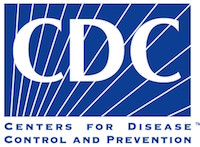
When the mystery illness was first spotted, healthcare professionals, parents, and the media jumped to name vaping as the culprit. As the number of young people found with vaping materials has continued its steady increase – many of them school-aged – vaping has emerged as a premiere parental concern of the 21st century. The reality, however, might be a bit more complicated.
In some of these new vaping illness cases, it would later come to light that the patient was vaping products purchased off the street rather than from legitimate sources. And, in many of those cases, the objective wasn’t to get a nicotine fix – it was to get THC; the compound responsible for marijuana’s high.
As a result, the CDC has taken the step of issuing a formal warning against the purchase and use of these products off the street, regardless of whether they are being used to deliver nicotine or cannabis-related compounds like THC. The agency has advised those who do use vaping and e-cigarette products to keep an eye on their own health and to seek medical attention if they develop symptoms like coughing, shortness of breath, or chest pain. Over two dozen states now have people in hospitals with the mysterious illness.
The spotlight has turned slightly to the dangers of bootleg and street vaping products, however, the momentum behind the effort to hold vaping device manufacturers accountable for their marketing practices also continues to build. A 20-year-old Alabama woman is suing Juul Labs over marketing practices she says led to her getting hooked on nicotine at the age of 17. Claiming a failure on Juul’s part to notify her of how much nicotine she was ingesting, Savannah West eventually began consuming up to two Juul pods per day; or the amount of nicotine present in about two packs of cigarettes. Her lawsuit seeks damages for “severe nicotine addiction, mood disorders, and brain injury.”
A similar lawsuit filed in Middlesex County, New Jersey tells a similar tale. Claiming that Juul’s marketing efforts were “irresponsible” and “predatory since the company launched,” an attorney representing two of the four teens suing the company says that “Juul deliberately used social media and viral marketing campaigns to lure teenagers into using its dangerous product.” One of the teens named in the lawsuit alleges an addiction so powerful he would sleep with his Juul so he could use it the instant he woke up.
Juul denies any efforts specifically targeting the youth market and stated that the “product has always only been intended to be a viable alternative for the one billion current adult smokers in the world.”
